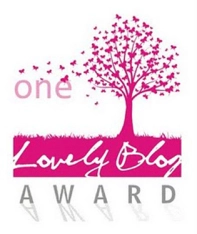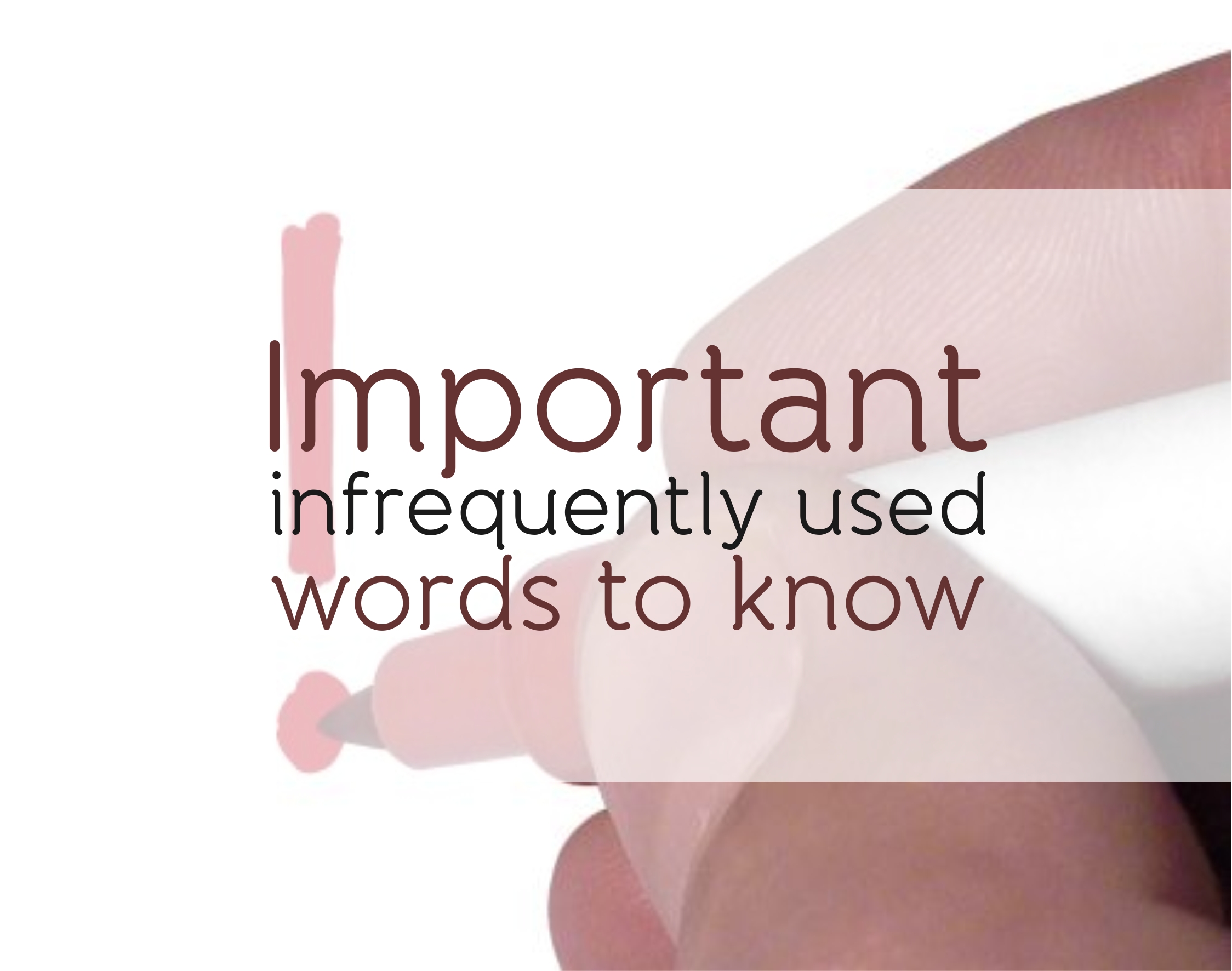No more boring sentences
I don’t know if it’s just me, but it seems like we, as writers, do get so wrapped up in the actions, thoughts and relationships of our characters that we completely forget to dress it up. Sentences get so long-winded in action and thought that any descriptive narrative is just left in the dust. With this tutorial, we will remedy that. Hopefully.
You may ask: What am I to do? And I shall tell you: You just need to start small, using basic descriptive words and work up to more complicated and sophisticated sentence structures.
- Let’s start with a plain, basic sentence.
Ollie sat underneath the tree.
- Let’s replace Ollie with a pronoun and give the tree a species.
A boy sat underneath the willow tree.
- Ask yourself this. How old is the boy? Is he very young? Or is he more of a teen? Is the tree dying? Is it a young tree? Use words like “young” or “lively” to give your character (or any other living things in the scene) an age group and a starting point to visualizing your character for the reader. We’re just going to call the boy “young” for right now.
A young boy sat underneath the willow tree.
- Now we need some sort of action the boy (or the tree) could be doing. just sitting isn’t going to cut it. when adding more action to a sentence, it would range anywhere from a single word to an entire phrase. just make sure that when you add the action that it moves with the rest of the sentence in a coherent fashion and that there is proper punctuation to accommodate it. for our little example sentence, we’re going to add a phrase.
A young boy sat underneath the willow tree, watching a breeze.
- “Watching the breeze” sounded all nice and fluffy when we first put it, but after we’ve read it a few times it sounds sort sort of ridiculous. One can’t literally watch a breeze, right? Here we can just add an action for the breeze to be doing simultaneously with the action of the boy. The boy doesn’t even have to have any awareness of what the breeze is doing at all. So, we will just change a few words around and add something for the breeze to do.
A young boy sat underneath the willow tree, as a breeze flitted through the bulrushes.
- Now that you are starting to get the hand of this, we can just skip a bunch of the steps and get to the end part, where we have a lovely and descriptive sentence worthy of opening your post. Below, as you can see, we added a few more choice words, replaced some things and moved some phrases around.
As a gentle breeze flitted through the bulrushes, a young boy sat contemplating underneath the ancient willow tree.
How to write much better
or not.
1. Avoid alliteration. Always.
2. Prepositions are not to end sentence with.
3. Avoid clichès like the plague (They’re old hat.).
4. Eschew ampersands & abbreviations, etc.
5. One should never generalize.
6. Comparisons are as bad as clichès.
7. Be more or less specific.
8. Sentence fragments. Eliminate.
9. Exaggeration is a billion times worse than understatement.
10. Parenthetical remarks (however relevant) are unnecessary.
11. Who needs rhetorical questions?
Lost in Long Sentences?

When reading essays, books, and novels, many people enjoy traveling through long, complex sentences with twists and turns that lead to a satisfying end. But in business writing, readers want a short, clear path to understanding. Follow the four tips below to edit long sentences.
1. Include just one idea per sentence. When sentences have several ideas, readers need to figure out the relationship between the ideas. They need to suspend their understanding until they get to the period (full stop). In contrast, readers can quickly grasp each one-idea sentence and move on to the next.
The sentence below packs in three ideas. The punctuation makes is easy to recognize them.
Test Yourself Number 1: Revise this three-idea sentence, whose length makes readers move slowly:
Our credit department has requested that you provide a copy of your exempt sales tax document and that you fill out the top and signature portion of the credit application just for assurance that we have the pertinent contact information correct.Revise the sentence to communicate just one idea per sentence. After you have tried, you can check my revision. It appears at the end of this article.
In baseball, the windup is the pitcher’s actions before releasing the ball. Although important to the pitcher, the windup can distract the batter. The same is true of readers: If you begin a sentence with a fancy windup, you may lose your readers before releasing your main idea. Instead, start with your subject.This sentence has a dizzying windup, which makes it too long and complicated:
Test Yourself Number 2: Start with the subject rather than the long windup in this sentence, so readers do not struggle to understand its meaning:By keeping the three critical success factors in mind and talking with your unit manager or your peer coach whenever you find yourself struggling with an employee issue, you should have the greatest opportunity for success as a new supervisor.
My revision appears at the end of the article.
Your revision might look like mine: The navigation panel on the left side of the screen is the same for all contractors. It helps them navigate through the site to find what they need quickly.
Test Yourself Number 3: Break up this long sentence by inserting a period and replacing and. Then compare your revision with mine, which appears at the end of the article.
Recently there have been several calls and emails from individuals who are using an MS Excel version dated earlier than 2007 and are not able to save their changes based on the instructions provided in the guidelines.
4. Do not let a long list transform your sentence into a solid wall of text. Often you need to include a list in your writing. But a sentence burdened with a long list can become a blur to your reader. If that happens, your reader will not see any of the important information in your list. The solution is to break up the long, heavy sentence into bullet points or short sentences that keep your reader’s attention.
How would you revise this list-heavy sentence?
- Counseling managers on issues ranging from major incidents to employee communications and community relations.
- Representing the company with various groups.
- Supporting the needs of individual plants.
- Managing strategic media opportunities and crisis communications.
- Placing community advertising.
- Publicizing company efforts in environmental stewardship.
Test Yourself Number 4: Restructure this long sentence so that each part stands out:If new information concerning the case should come to your attention, if you should leave the area for more than a few days, or if you should change your address or telephone number, please advise Marie Smith or your insurance agent immediately.
Solution to Number 1:Our credit department has requested that you provide a copy of your exempt sales tax document. Also, please fill out the top and signature portion of the credit application. This step is just for assurance that we have the pertinent contact information correct.Solution to Number 2:You should have the greatest opportunity for success as a new supervisor if you do these two things: Keep the three critical success factors in mind. Talk with your unit manager or your peer coach whenever you find yourself struggling with an employee issue.Solution to Number 3:Recently there have been several calls and emails from individuals who are using an MS Excel version dated earlier than 2007. They are not able to save their changes based on the instructions provided in the guidelines.Solution to Number 4:Please immediately advise Marie Smith or your insurance agent if any of these occurs:
-
New information concerning the case comes to your attention.
-
You leave the area for more than a few days.
-
You change your address or telephone number.
The 100 Most Beautiful Words in English

| Ailurophile | A cat-lover. |
| Assemblage | A gathering. |
| Becoming | Attractive. |
| Beleaguer | To exhaust with attacks. |
| Brood | To think alone. |
| Bucolic | In a lovely rural setting. |
| Bungalow | A small, cozy cottage. |
| Chatoyant | Like a cat’s eye. |
| Comely | Attractive. |
| Conflate | To blend together. |
| Cynosure | A focal point of admiration. |
| Dalliance | A brief love affair. |
| Demesne | Dominion, territory. |
| Demure | Shy and reserved. |
| Denouement | The resolution of a mystery. |
| Desuetude | Disuse. |
| Desultory | Slow, sluggish. |
| Diaphanous | Filmy. |
| Dissemble | Deceive. |
| Dulcet | Sweet, sugary. |
| Ebullience | Bubbling enthusiasm. |
| Effervescent | Bubbly. |
| Efflorescence | Flowering, blooming. |
| Elision | Dropping a sound or syllable in a word. |
| Elixir | A good potion. |
| Eloquence | Beauty and persuasion in speech. |
| Embrocation | Rubbing on a lotion. |
| Emollient | A softener. |
| Ephemeral | Short-lived. |
| Epiphany | A sudden revelation. |
| Erstwhile | At one time, for a time. |
| Ethereal | Gaseous, invisible but detectable. |
| Evanescent | Vanishing quickly, lasting a very short time. |
| Evocative | Suggestive. |
| Fetching | Pretty. |
| Felicity | Pleasantness. |
| Forbearance | Withholding response to provocation. |
| Fugacious | Fleeting. |
| Furtive | Shifty, sneaky. |
| Gambol | To skip or leap about joyfully. |
| Glamour | Beauty. |
| Gossamer | The finest piece of thread, a spider’s silk |
| Halcyon | Happy, sunny, care-free. |
| Harbinger | Messenger with news of the future. |
| Imbrication | Overlapping and forming a regular pattern. |
| Imbroglio | An altercation or complicated situation. |
| Imbue | To infuse, instill. |
| Incipient | Beginning, in an early stage. |
| Ineffable | Unutterable, inexpressible. |
| Ingénue | A naïve young woman. |
| Inglenook | A cozy nook by the hearth. |
| Insouciance | Blithe nonchalance. |
| Inure | To become jaded. |
| Labyrinthine | Twisting and turning. |
| Lagniappe | A special kind of gift. |
| Lagoon | A small gulf or inlet. |
| Languor | Listlessness, inactivity. |
| Lassitude | Weariness, listlessness. |
| Leisure | Free time. |
| Lilt | To move musically or lively. |
| Lissome | Slender and graceful. |
| Lithe | Slender and flexible. |
| Love | Deep affection. |
| Mellifluous | Sweet sounding. |
| Moiety | One of two equal parts. |
| Mondegreen | A slip of the ear. |
| Murmurous | Murmuring. |
| Nemesis | An unconquerable archenemy. |
| Offing | The sea between the horizon and the offshore. |
| Onomatopoeia | A word that sounds like its meaning. |
| Opulent | Lush, luxuriant. |
| Palimpsest | A manuscript written over earlier ones. |
| Panacea | A solution for all problems |
| Panoply | A complete set. |
| Pastiche | An art work combining materials from various sources. |
| Penumbra | A half-shadow. |
| Petrichor | The smell of earth after rain. |
| Plethora | A large quantity. |
| Propinquity | An inclination. |
| Pyrrhic | Successful with heavy losses. |
| Quintessential | Most essential. |
| Ratatouille | A spicy French stew. |
| Ravel | To knit or unknit. |
| Redolent | Fragrant. |
| Riparian | By the bank of a stream. |
| Ripple | A very small wave. |
| Scintilla | A spark or very small thing. |
| Sempiternal | Eternal. |
| Seraglio | Rich, luxurious oriental palace or harem. |
| Serendipity | Finding something nice while looking for something else. |
| Summery | Light, delicate or warm and sunny. |
| Sumptuous | Lush, luxurious. |
| Surreptitious | Secretive, sneaky. |
| Susquehanna | A river in Pennsylvania. |
| Susurrous | Whispering, hissing. |
| Talisman | A good luck charm. |
| Tintinnabulation | Tinkling. |
| Umbrella | Protection from sun or rain. |
| Untoward | Unseemly, inappropriate. |
| Vestigial | In trace amounts. |
| Wafture | Waving. |
| Wherewithal | The means. |
| Woebegone | Sorrowful, downcast. |
The 100 Funniest Words in English

| Abibliophobia | The fear of running out of reading material. |
| Absquatulate | To leave or abscond with something. |
| Allegator | Some who alleges. |
| Anencephalous | Lacking a brain. |
| Argle-bargle | A loud row or quarrel. |
| Batrachomyomachy | Making a mountain out of a molehill. |
| Billingsgate | Loud, raucous profanity. |
| Bloviate | To speak pompously or brag. |
| Blunderbuss | A gun with a flared muzzle or disorganized activity. |
| Borborygm | A rumbling of the stomach. |
| Boustrophedon | A back and forth pattern. |
| Bowyang | A strap that holds the pants legs in place. |
| Brouhaha | An uproar. |
| Bumbershoot | An umbrella. |
| Callipygian | Having an attractive rear end or nice buns. |
| Canoodle | To hug and kiss. |
| Cantankerous | Testy, grumpy. |
| Catercornered | Diagonal(ly). |
| Cockalorum | A small, haughty man. |
| Cockamamie | Absurd, outlandish. |
| Codswallop | Nonsense, balderdash. |
| Collop | A slice of meat or fold of flab. |
| Collywobbles | Butterflies in the stomach. |
| Comeuppance | Just reward, just deserts. |
| Crapulence | Discomfort from eating or drinking too much. |
| Crudivore | An eater of raw food. |
| Discombobulate | To confuse. |
| Donnybrook | An melee, a riot. |
| Doozy | Something really great. |
| Dudgeon | A bad mood, a huff. |
| Ecdysiast | An exotic dancer, a stripper. |
| Eructation | A burp, belch. |
| Fard | Face-paint, makeup. |
| Fartlek | An athletic training regime. |
| Fatuous | Unconsciously foolish. |
| Filibuster | Refusal to give up the floor in a debate to prevent a vote. |
| Firkin | A quarter barrel or small cask. |
| Flibbertigibbet | Nonsense, balderdash. |
| Flummox | To exasperate. |
| Folderol | Nonsense. |
| Formication | The sense of ants crawling on your skin. |
| Fuddy-duddy | An old-fashioned, mild-mannered person. |
| Furbelow | A fringe or ruffle. |
| Furphy | A portable water-container. |
| Gaberlunzie | A wandering beggar. |
| Gardyloo! | A warning shouted before throwing water from above. |
| Gastromancy | Telling fortune from the rumblings of the stomach. |
| Gazump | To buy something already promised to someone else. |
| Gobbledygook | Nonsense, balderdash. |
| Gobemouche | A highly gullible person. |
| Godwottery | Nonsense, balderdash. |
| Gongoozle | To stare at, kibitz. |
| Gonzo | Far-out journalism. |
| Goombah | An older friend who protects you. |
| Hemidemisemiquaver | A musical timing of 1/64. |
| Hobbledehoy | An awkward or ill-mannered young boy. |
| Hocus-pocus | Deceitful sleight of hand. |
| Hoosegow | A jail or prison. |
| Hootenanny | A country or folk music get-together. |
| Jackanapes | A rapscallion, hooligan. |
| Kerfuffle | Nonsense, balderdash. |
| Klutz | An awkward, stupid person. |
| La-di-da | An interjection indicating that something is pretentious. |
| Lagopodous | Like a rabbit’s foot. |
| Lickety-split | As fast as possible. |
| Lickspittle | A servile person, a toady. |
| Logorrhea | Loquaciousness, talkativeness. |
| Lollygag | To move slowly, fall behind. |
| Malarkey | Nonsense, balderdash. |
| Maverick | A loner, someone outside the box. |
| Mollycoddle | To treat too leniently. |
| Mugwump | An independent politician who does not follow any party. |
| Mumpsimus | An outdated and unreasonable position on an issue. |
| Namby-pamby | Weak, with no backbone. |
| Nincompoop | A foolish person. |
| Oocephalus | An egghead. |
| Ornery | Mean, nasty, grumpy. |
| Pandiculation | A full body stretch. |
| Panjandrum | Someone who thinks himself high and mighty. |
| Pettifogger | A person who tries to befuddle others with his speech. |
| Pratfall | A fall on one’s rear. |
| Quean | A disreputable woman. |
| Rambunctious | Aggressive, hard to control. |
| Ranivorous | Frog-eating |
| Rigmarole | Nonsense, unnecessary complexity. |
| Shenanigan | A prank, mischief. |
| Sialoquent | Spitting while speaking. |
| Skedaddle | To hurry somewhere. |
| Skullduggery | No good, underhanded dealing. |
| Slangwhanger | A loud abusive speaker or obnoxious writer. |
| Smellfungus | A perpetual pessimist. |
| Snickersnee | A long knife. |
| Snollygoster | A person who can’t be trusted. |
| Snool | A servile person. |
| Tatterdemalion | A child in rags. |
| Troglodyte | Someone or something that lives in a cave. |
| Turdiform | Having the form of a lark. |
| Unremacadamized | Having not been repaved with macadam. |
| Vomitory | An exit or outlet. |
| Wabbit | Exhausted, tired, worn out. |
| Widdershins | In a contrary or counterclockwise direction. |
| Yahoo | A rube, a country bumpkin. |
| @ | The “at” sign. |
8 Overused Cliches Employers Are Sick Of Seeing in Resumes
Written
Looking for a new job isn’t easy, and it can be hard to want to put your best into every iteration of your resume and cover letter. But here’s the thing: even though the economy’s been improving, times are still tough. Plenty of people are looking, and that means for every job opening you see, there’s some HR person out there who is being swamped with a deluge of resumes.
If you want to be sure your resume will actually make them hit the pause button (figuratively) and not the delete button (literally), you’ve got to avoid these cliche words and phrases that sound impressive but don’t actually convey much meaning.
“I’m a creative thinker”
Unless it’s literally part of your job title (e.g., Creative Director), “creative” is an adjective that’s become so overused it’s utterly meaningless to many recruiters. Think of what the inverse of this statement would be: “I only think inside the box.” “I can’t come up with anything new.” “I have no ideas of my own to contribute.” Literally no one is going to say that, so it means that stating the obvious is well, pretty obvious.
Instead of saying you’re creative, demonstrate that you’re creative with a well-written cover letter. Give a specific example of a problem you’ve overcome, a solution you devised, or how you’ve managed to expand your current role.

“I’m results-oriented.”
Again, who exactly doesn’t want to get results for their employer? (A person they don’t want to hire, that’s who!) They will assume you’re results oriented, so show them the actual results.
Numbers can help here: Quantify how many sales you made in the last quarter, the number of people you’ve supervised as part of your team, or the amount of traffic your ad campaign drove to your client.
 “I’m a guru/ninja/expert/etc.”
“I’m a guru/ninja/expert/etc.”
No, no, no. Unless “Guru” or “Ninja” is your actual job title, skip the enthusiastic euphemisms. Yeah, if one of your references describes you that way, it’s great — but if you’re talking about yourself like this, it’s a bit empty.
If you really are extra-super-good at what you do, show it by listing your accomplishments: Grants you won, conferences you’ve spoken at, programming languages or software you’ve mastered, and so on. If you’re kicking butt, your accomplishments will convey that for you.

“I have excellent oral and written communication skills.”
Another case of something you should show, not tell. Though you’ll frequently see this on job descriptions, if it shows up in your cover letter or resume it feels like filler — because it is. If you really do have excellent communication skills, you’ll have a cover letter that’s clearly written, appropriately tailored to the position, and inviting to the reader. Same goes for your resume.
Drop this line, and spend the extra time proofreading to make sure that you don’t have any spelling errors or grammar gaffes. (If you’ve read your own resume so many times that you won’t even notice a mistake, ask a friend to proof it for you.)

“My references are available upon request.”
Well, yeah, they should be! Even if a potential employer hasn’t asked for your references yet (and many don’t until you’re doing a formal application), it’s more than acceptable to let them assume that of course you have references.
If they have asked for you references, name them and give their contact info in the appropriate part of the form, in a separate document, or below your cover letter, if you’re sending that in the body of an email. (In those instances, say something like, “Attached please find my references” or “Please find my references listed below.”) If they didn’t ask? Just don’t mention it for now. Use the extra space to say something useful about yourself!

“I’m detail-oriented.”
No one’s going to say “I’m a total space cadet” or “I don’t sweat the small stuff.” But saying you’re detail-oriented has become such a cliche as to be totally meaningless (not least because so many recruiters see resumes that are riddled with spelling errors and cover letters personalized for the wrong company by applicants who claim to be “detail-oriented”). Again, show this by making sure that your cover letter and resume are free of basic grammar and spelling slip-ups.
You can also demonstrate your attention to detail by being specific in your discussion of what you do: Managed a staff of three interns; Served as liaison between lab group and department head; Spearheaded development of pay-per-click marketing campaigns for X, Y, and Z clients.

“Duties:”
Don’t just list! Your resume needs to tell a story about you, not just rehash the job posting for your previous gig. Instead of making a simple list that begins with “duties” or “responsibilities include” (come on, you know that sounds like a total snoozefest), use active verbs to help convey the specific tasks you’ve accomplished on the job. Collaborated with internal team and external vendors to source products, implemented a new system for tracking leads, revamped corporate website to reflect new brand strategy.
Even if what you do isn’t terribly thrilling, using specific, active verbs can your resume stand out. (E.g., “Client communication” versus “Communicated with clients to ensure that targets were met and issues were promptly resolved.”)

“I’m passionate about what I do.”
Are you? Though today many employers want an intense level of commitment (which is a whole other deal), there are limits to how “passionate” one can be about, say, a call center job. Likewise, if you’re just starting out and you’re applying for jobs that are in a wide range of fields, you probably don’t have a “passion” for each and every one of them. If you actually are into what you do, it should be conveyed not only by your cover letter and resume, but also by your web presence (and yes, you should assume that before you get an interview request, you’re going to be Googled).
Your LinkedIn profile should obviously show that you’re excited about what you do, but ideally any other public profile (e.g., Twitter, which relatively few people have set to private) should reflect your interest and enthusiasm, at least a little. If it doesn’t, just leave “passionate” out of it. Otherwise, you’re just setting yourself up for an interview fail: “So, what makes you passionate about being an administrative assistant?” “Uhhhhhhhhh.” Don’t lay out anything in your cover letter or resume that you aren’t ready to answer for when you finally get that call.
Source
Image source: pixabay.com
Seven Tips for Communicating Data

Written by Lynn Gaertner-Johnston, Syntax Training
After you have worked hard to collect meaningful data, the big challenges are how and how much to communicate. Consider these tips when you work on your next report or presentation that includes data.
- Focus first on your message, not on the numbers.
When planning your communication, focus first on the big idea or points you want to make. Then incorporate the data that will help your audience understand and appreciate your points. Be sure your big idea gets center stage, not the numbers. - Explain the data.
Numbers mean nothing on their own. They need interpretation. Avoid asking readers or your audience to “review the attached spreadsheets.” Why should they review them? Which numbers should they pay attention to and why? What do the numbers indicate? - Put data in context.
Make it clear whether numbers are positive, negative, or neutral. If you tell a sales rep that she visited an average of six prospects per day, compare that number to the goal number of prospects. If a client walks 5500 steps in a day, state whether 5500 is the magic healthy number or only halfway there. If expenses are 18 percent over income, say why the reader should care. Explain that the account balance will be €0 by 2018 if nothing changes. - Paint a picture with your numbers so people can see them.
Even simple expressions like “a tenfold increase” or “a 30 percent drop” can seem vague unless your audience can see them. If numbers have decreased dramatically over a decade, do not use words and numbers alone. In a bold-colored graph, show the deep drop year by year, month by month over 10 years.
If your numbers are so large as to be abstract, paint them in recognizable mental pictures such as an area as large as Italy or a distance of 100 Greyhound buses. (Think of your audience when you choose the image.) How hot is 158 degrees Fahrenheit? Hot enough to fry an egg on the sidewalk.
Or show the numbers reduced to their essence. Jack Hagley’s graphic “The World as 100 People” (www.jackhagley.com/The-World-as-100-People) presents the world as though it were only 100 people. For instance, 83 of the world’s 100 people are able to read and write; 17 are not.
- Highlight important numbers.
A wall of numbers is as intimidating as a wall of text. Pull out essential numbers and focus on them. If you are presenting financial data, show just a small portion of it at a time on a slide or a page–just the portion you are discussing now. If you refer to and show just a small part, your audience will not say, “Where are you?” and “What are you talking about?” And always render numbers in a large enough font that you do not have to apologize for it.
Make it easy for your readers to find important numbers. If a client has asked for your fee, for example, don’t bury the number in a paragraph. Instead, render the number alone on a line or as part of a short heading, like this:
Your investment: US$19,000
- Prominently display the legends for tables and charts of numbers.
Ensure that your audience will know instantly that 3000 indicates 3,000,000 and that your balance is positive rather than negative. Use abbreviations such as K and M only if you are certain your readers understand them. (To some people, M means thousand; to others, it means million.) - Use only the essential, compelling numbers in the body of your document.
If numbers weigh down your document, your readers may forget your main point. So move most of the supporting tables, lists, charts, and graphs to the appendices. In a presentation, hold back some slides of data, and show them only upon request. Remember: The numbers are not the message; they serve the message.
If you think of your communication as music, your most important message comes through the soloist. The numbers are the accompanists. They play an essential role, but they should never drown out the soloist. If they do, your communication will not reach and change your audience.
8 Tantalizing Terms for Eating
Gobble
[gob–uhl]
 There are many different ways to partake in a meal: if your appetite is slight, then you might peck and nibble, but if you’re famished, you’re more likely to gobble. This word, which means both “to eat hastily” and “to make the throaty cry of a male turkey,” is thought to be a formation from the word gob, which is slang for mouth. Both definitions could be fun to try out at the dinner table.
There are many different ways to partake in a meal: if your appetite is slight, then you might peck and nibble, but if you’re famished, you’re more likely to gobble. This word, which means both “to eat hastily” and “to make the throaty cry of a male turkey,” is thought to be a formation from the word gob, which is slang for mouth. Both definitions could be fun to try out at the dinner table.Devour
[dih-vou–uhr, –vou-er]
 Another term for the ravenous, the word devour conjures a beastly manner of eating. The word is often invoked to express a degree of barbarous consumption, as in this passage from Robinson Crusoe about men so hungry they’d lost command of themselves: “The poor Creatures rather devour’d than eat it.”
Another term for the ravenous, the word devour conjures a beastly manner of eating. The word is often invoked to express a degree of barbarous consumption, as in this passage from Robinson Crusoe about men so hungry they’d lost command of themselves: “The poor Creatures rather devour’d than eat it.”Scarf
[skahrf]
 More than a festive fashion accessory, scarf can also mean “to eat, especially voraciously“. It’s often paired with a helping word, such as up or down, and implies a rapid or frenzied feeding. Those who scarf up their meals are often the first ones at the table to finish, and, as a result, the first ones to nap.
More than a festive fashion accessory, scarf can also mean “to eat, especially voraciously“. It’s often paired with a helping word, such as up or down, and implies a rapid or frenzied feeding. Those who scarf up their meals are often the first ones at the table to finish, and, as a result, the first ones to nap.Grub
[gruhb]
 One of the more versatile words on this list when it comes to discussing cuisine, grub can be used to refer to food itself, to the supplying of food, and to the eating of food. Needless to say, it’s a handy word to have in your back pocket at a family meal. But beware: in its noun form, this wily word can also mean “a dull, plodding person“, or the “sluggish larva, as of a scarab beetle“. Use this term wisely at the dinner table.
One of the more versatile words on this list when it comes to discussing cuisine, grub can be used to refer to food itself, to the supplying of food, and to the eating of food. Needless to say, it’s a handy word to have in your back pocket at a family meal. But beware: in its noun form, this wily word can also mean “a dull, plodding person“, or the “sluggish larva, as of a scarab beetle“. Use this term wisely at the dinner table.Chow Down
[chou]
 Associated more with meals of substance than snacks, the phrase chow down incorporates the word chow, which was perhaps brought to us from the Chinese pidgin English word chow-chow meaning “food.”
Associated more with meals of substance than snacks, the phrase chow down incorporates the word chow, which was perhaps brought to us from the Chinese pidgin English word chow-chow meaning “food.”Gorge
[gawrj]
 This word, which comes to us from the Old French verb gorger, means both “to eat greedily” and “to stuff with food.” In its noun form, gorge can refer to a gluttonous meal or the throat. So remember: the next time you gorge on a gorge, be sure to wash it down with water; we wouldn’t want anything to get stuck in your gorge.
This word, which comes to us from the Old French verb gorger, means both “to eat greedily” and “to stuff with food.” In its noun form, gorge can refer to a gluttonous meal or the throat. So remember: the next time you gorge on a gorge, be sure to wash it down with water; we wouldn’t want anything to get stuck in your gorge.Nosh
[nosh]
 Unlike devour and gorge, this word for eating implies a lighter and more casual consumption. Nosh means “to snack or eat between meals” or “to snack on.” It came to English from the Yiddish nashn meaning “to nibble”.
Unlike devour and gorge, this word for eating implies a lighter and more casual consumption. Nosh means “to snack or eat between meals” or “to snack on.” It came to English from the Yiddish nashn meaning “to nibble”.Gormandize
[v. gawr-muhn-dahyz]
 Those who gormandize at the dining table eat in a particularly greedy or ravenous manner. The word comes to us from the Middle French gourmand, meaning “glutton.” In English, the noun gourmand has the slightly less pejorative sense of “a person who is fond of good eating, often indiscriminately and to excess.”
Those who gormandize at the dining table eat in a particularly greedy or ravenous manner. The word comes to us from the Middle French gourmand, meaning “glutton.” In English, the noun gourmand has the slightly less pejorative sense of “a person who is fond of good eating, often indiscriminately and to excess.”SOURCE
10 Simple Rules For Good Writing

Whether you’re writing fiction or non-fiction, the rules for good writing are fundamentally the same.
1. Express, not impress.
Good writing is not about the number of words you’ve produced, the quality of the adjectives you’ve written or the size of your font–it’s about the number of lives you’ve touched! It’s whether or not your reader understands you. It’s about expression, not impression.
2. Simple sentences work best.
– The only possible option in order to accelerate the growth of the food industry is to focus on the fact that the target market of this business demands convenience, competence and cost-effectiveness.
– Better: The food industry can grow faster if food trucks focus on convenience, competence and cost-effectiveness.
3. Active, rather than passive.
– The offering price was established by the real estate vendor and the negotiation process was initiated by the real estate buyer.
– Better: The real estate vendor set the offering price, and the real estate buyer started negotiating.
4. Know who your target audience is.
Who are you writing for? Who do you expect to read your article, your book, or your blog post? Will they care about what you’re talking about? Will they understand the message that you’re trying to get across? Good writing isn’t generic; it’s specific because it’s targeted towards a group of people with something common binding them.
5. Read it aloud.
Reading your works out loud allows you to notice something that you might not have noticed if you were just reading it silently. Go on, read them out loud now. Also, try to listen to your work objectively as you read it. Are you making sense? Or are you simply stringing a couple of words together just to fill a gap?
6. Avoid using jargon as much as possible.
Not everyone in your audience will know what a “bull market” is. Not everyone knows that “pyrexia” is basically the same thing as “a fever”. And surely you can come up with a better term for high blood pressure than “hypertension”?
7. In terms of words, size matters.
Please, don’t strain yourself by browsing the Internet, looking for complicated and fancy-sounding words. Less is always more.
– The man gave a me look so sharp that I sincerely believed it could pierce my heart and see my innermost fears.
– Better: The man glared at me.
8. Being positive is better than being negative–even in writing!
– I did not think that the unbelievable would not occur.
– Better: I thought the unbelievable would happen.
9. Set aside time for revising and rewriting–after you’ve written the whole content.
I’m not suggesting that you should edit each time you’ve finished a paragraph–that would just be tedious. What I’m telling is that you should first give yourself some time to finish the content prior to editing. Write away. Don’t edit yet. Don’t focus on the grammar yet. Don’t worry about the syntax, the synonym, the antonym or the order that you’re using.
Write for yourself, but mostly, write for your target audience. Write the message clearly and don’t be afraid to express your thoughts. Don’t censor yourself yet. Let the words flow. Don’t erase what you’ve written yet.
Right now, it’s all about expression, about art and about your imagination.
All the editing and the fixing will come later.
10. Write. All the time.
Good writing is simply always writing. Write when you’re sad. Write when you’re scared. Write when you don’t feel like writing.























